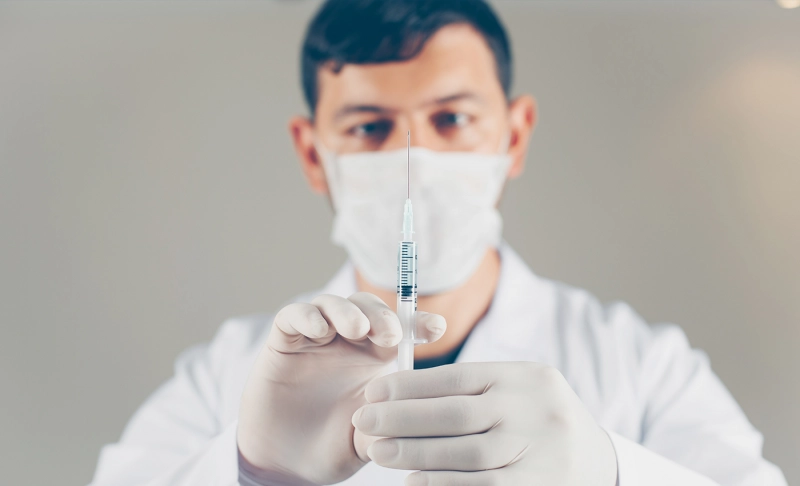By: Devika Kandelwal
December 9 2021

Videos posted online of Johnson receiving the booster jab clearly show an exposed needle.
Videos posted online of Johnson receiving the booster jab clearly show an exposed needle. A Facebook user posted a series of images of U.K. Prime Minister Boris Johnson getting a booster jab on December 3 with the caption, "Yoooooo borris got his booster but the nurse forgot to wear her gloves and the cap is still on 😂😂😂." The user is saying that Johnson actually did not get the vaccine, as the nurse is not wearing her gloves, and the syringe is still covered with a cap. The Facebook post has been viewed 1.8M times in the last 24 hours. The same claim can be found on other social media platforms, with many saying that if you zoom in, you'll find that the cap of the syringe is still on. This is false. The video of Johnson receiving the booster jab posted by Sky News clearly shows the exposed needle. An image posted by AP also shows the exposed needle. It is true that the nurse is not wearing latex gloves. However, most health organizations do not require medical professionals to use protective gloves while giving vaccines. The U.K.'s Royal College of Nursing says that's because giving vaccines is a "minimal contact procedure," meaning there is a low likelihood of contamination. The Royal College clarifies that nurses should practice good hand hygiene, and wash their hands thoroughly between each patient. The Centers for Disease Control (CDC) agrees with this advice, further clarifying: "Gloves are not required unless the person administering the vaccine is likely to come in contact with potentially infectious body fluids or has open lesions on the hands. If worn, perform hand hygiene and change gloves between patient." Johnson received his booster jab at St. Thomas Hospital in London on December 2, 2021. He originally had two doses of AstraZeneca, and his booster jab was the Pfizer-BioNTech vaccine. The COVID-19 pandemic has given rise to a lot of potentially dangerous misinformation. For reliable advice on COVID-19, including symptoms, prevention, and available treatment, please refer to the World Health Organization or your national healthcare authority.